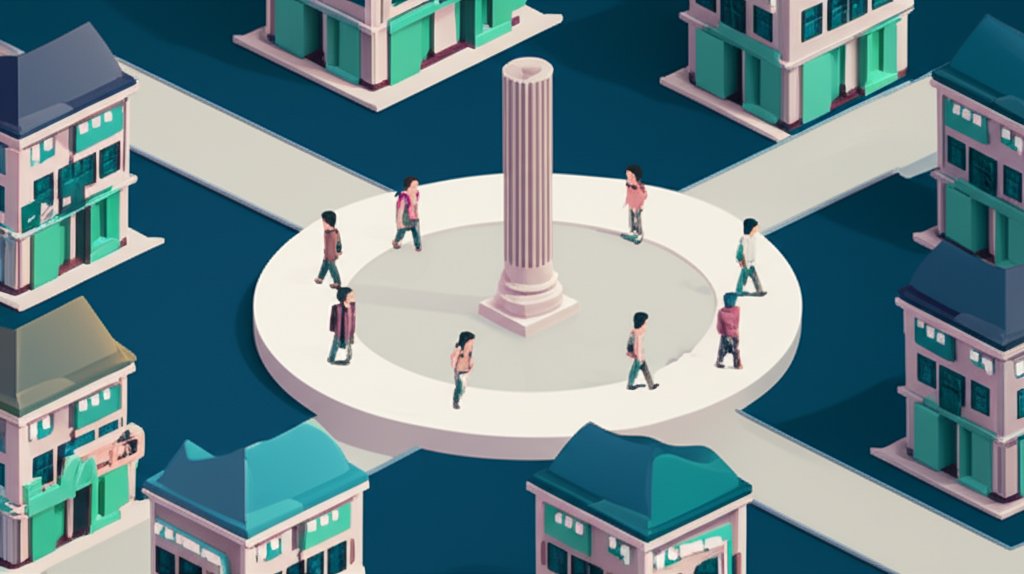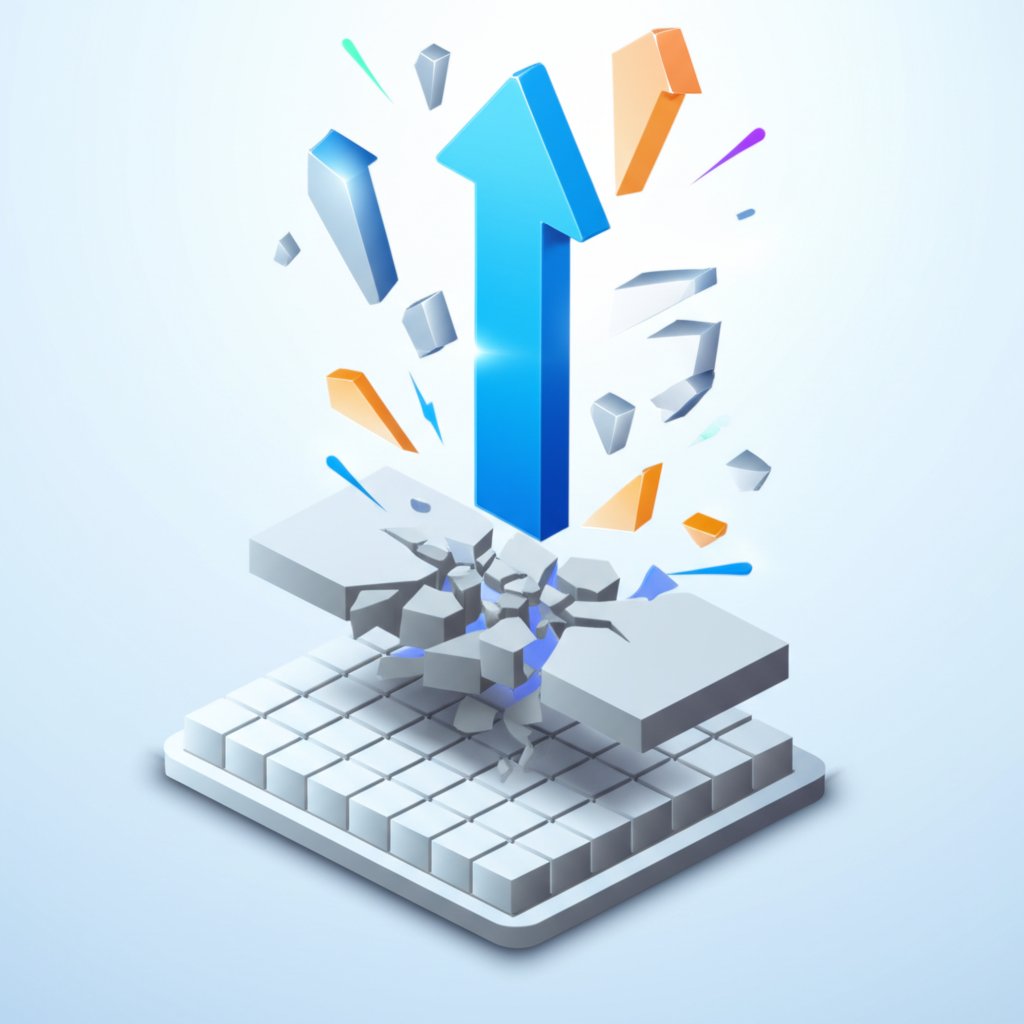In every era, amidst the comfortably familiar landscape of convention, voices emerge that dare to question the very foundations of accepted reality. These are the revolutionary thinkers, individuals whose profound insights and unwavering courage ignite transformation, proving that progress is not merely an evolution, but often a radical re-imagination. They are the architects of change, the prophets of new paradigms, who relentlessly push against the prevailing status quo, forever altering the course of human civilization.
From the ancient agora to the digital forum, the impulse to challenge established norms is a powerful engine of societal advancement. This article delves into the lives and legacies of those who embodied this spirit, offering a historical perspective on their methods, the obstacles they overcame, and the enduring power of their dissent. We’ll explore how these visionaries not only reshaped their own times but also laid the groundwork for future generations to continue challenging established norms, reminding us all of the transformative impact a single idea can have on the world.
What Defines a Revolutionary Thinker?
A revolutionary thinker is more than just an intelligent individual; they are a catalyst. Their ideas aren’t simply novel; they are disruptive, capable of dismantling long-held beliefs, power structures, or scientific understandings. To truly be revolutionary, a thinker must not only conceive of a new way but also articulate it with such clarity and conviction that it inspires others to abandon the old.
Beyond Innovation: The Catalyst for Societal Change
What sets these individuals apart is their unique blend of intellectual prowess and moral fortitude. They possess:
- Vision: An ability to see beyond the limitations of current systems, envisioning a radically different, often better, future.
- Critical Thinking: A relentless capacity to scrutinize and deconstruct the underlying assumptions of the status quo.
- Courage: The bravery to voice unpopular truths and endure the inevitable backlash from those invested in preserving the existing order.
- Resilience: The endurance to persist in their efforts despite ridicule, opposition, and even persecution.
- Empathy: Often, a deep understanding of human suffering or injustice that fuels their desire for change.
Their contributions are not just incremental improvements, but fundamental shifts that redefine what is possible, what is moral, or what is true.
Understanding the Status Quo: The Unseen Chains
To appreciate the power of revolutionary thinkers, one must first grasp the pervasive nature of the status quo. This Latin phrase, meaning “the existing state of affairs,” refers to the prevailing social, political, economic, scientific, or cultural norms that are generally accepted and maintained by a society.
The status quo can manifest in various forms:
- Social Norms: Unwritten rules of behavior, dress, or interaction that dictate everyday life.
- Political Systems: The established forms of governance, laws, and power distribution.
- Economic Structures: The accepted ways of producing, distributing, and consuming wealth.
- Scientific Paradigms: The dominant theories and methodologies that guide scientific inquiry.
- Cultural Beliefs: Shared values, traditions, and worldviews, often intertwined with religious or philosophical doctrines.
While the status quo provides stability and predictability, it can also become a barrier to progress, perpetuating injustice, stifling innovation, and hindering adaptation. It is against this entrenched backdrop that revolutionary thinkers bravely raise their voices, initiating the often tumultuous but ultimately vital process of challenging established norms.
A Historical Perspective on Challenging Established Norms
History is a rich tapestry woven with threads of conformity and dissent. From ancient civilizations to modern societies, the act of challenging established norms has been a consistent pattern, revealing the human capacity for self-correction and evolution.
Ancient Seeds of Dissent: Socrates and Early Philosophers
Perhaps one of the earliest and most iconic examples comes from ancient Greece. Socrates (c. 470–399 BCE) epitomized the revolutionary thinker by challenging established norms through relentless questioning. He engaged citizens in dialectical debates, exposing the superficiality of their understanding of justice, virtue, and piety. His method, known as the Socratic method, was not merely academic; it was a profound act of dissent against the intellectual and moral complacency of Athenian society. By prompting individuals to critically examine their own beliefs and the prevailing wisdom, he sowed the seeds of doubt in the status quo. His reward? A death sentence for corrupting the youth and impiety – a stark reminder of the risks involved in radical thought.
Science vs. Dogma: Copernicus, Galileo, and Darwin
The realm of science has been a fertile ground for challenging established norms, often with profound consequences.
- Nicolaus Copernicus (1473–1543), with his heliocentric model, dared to suggest that the Earth was not the center of the universe. This was a direct affront to the prevailing geocentric status quo, which was deeply intertwined with theological doctrines. His work, published posthumously, sparked a scientific revolution.
- Galileo Galilei (1564–1642) provided empirical evidence for Copernicus’s theories through his telescopic observations. His outspoken promotion of heliocentrism led him into direct conflict with the powerful Catholic Church, which saw his ideas as a dangerous dissent from biblical interpretation. Galileo’s subsequent trial and house arrest underscore the fierce resistance often faced by those challenging established norms with scientific truth.
- Charles Darwin (1809–1882) revolutionized biology with his theory of evolution by natural selection. This monumental idea presented a naturalistic explanation for the diversity of life, directly challenging established norms of creationism and the fixed nature of species. Darwin’s work ignited a fierce debate that continues to resonate, demonstrating the enduring impact of a truly revolutionary thinker.
Political and Social Revolutions: From Enlightenment to Civil Rights
The political and social spheres have witnessed some of the most dramatic acts of challenging established norms, often leading to foundational shifts in governance and human rights.
- Enlightenment Thinkers: Figures like John Locke (1632–1704) and Jean-Jacques Rousseau (1712–1778) fundamentally challenged established norms of absolute monarchy and divine right. Their ideas on natural rights, social contract, and popular sovereignty provided the intellectual bedrock for the American and French Revolutions, demonstrating how philosophical dissent can trigger armed uprisings and reshape nations.
- Mary Wollstonecraft (1759–1797), an early feminist, courageously published A Vindication of the Rights of Woman, directly challenging established norms of female inferiority and advocating for women’s education and rational autonomy. Her work was a radical act of dissent that paved the way for future feminist movements.
- Mahatma Gandhi (1869–1948) pioneered nonviolent civil disobedience (Satyagraha) as a powerful means of challenging established norms of British colonial rule in India. His philosophy and actions, rooted in profound moral dissent, inspired countless movements for civil rights and freedom worldwide.
- Rosa Parks (1913–2005) and Nelson Mandela (1918–2013): Their unwavering commitment to racial equality saw them challenging established norms of segregation and apartheid. Parks’ refusal to give up her bus seat sparked the Montgomery Bus Boycott, a pivotal moment in the American Civil Rights Movement. Mandela’s decades-long struggle against apartheid in South Africa, marked by imprisonment and eventual leadership, stands as a global testament to the power of persistent dissent against systemic injustice.
- Emmeline Pankhurst (1858–1928) led the militant British suffragette movement, challenging established norms that denied women the right to vote. Facing imprisonment and public scorn, she and her followers employed various forms of dissent to draw attention to their cause, ultimately contributing to women’s suffrage.
The Mechanics of Dissent: How Revolutionary Thinkers Operate
The act of challenging established norms is rarely simple. It involves a strategic and often arduous process, requiring both intellectual rigor and immense resilience. Revolutionary thinkers employ a range of tactics to move their ideas from mere thought to societal transformation.
Questioning and Deconstructing Existing Paradigms
The first step for any revolutionary thinker is to identify the cracks in the present reality. This involves:
- Skepticism and Inquiry: A refusal to accept things at face value. They ask “why?” and “what if?” relentlessly, probing the weaknesses and inconsistencies of prevailing doctrines.
- Deconstruction: Breaking down complex systems, beliefs, or scientific models into their fundamental components to reveal their underlying assumptions, biases, and perhaps their inherent flaws or injustices.
- Identifying Blind Spots: Often, the status quo creates collective blind spots, making certain injustices or inefficiencies invisible to those within the system. Revolutionary thinkers are uniquely adept at illuminating these hidden aspects.
For instance, Isaac Newton didn’t just propose gravity; he questioned the prevailing Aristotelian view of motion that had dominated for centuries, systematically dismantling it with empirical observation and mathematical proof.
Articulating Alternative Visions and Solutions
It’s not enough to simply criticize; revolutionary thinkers must also offer compelling alternatives. This involves:
- Conceptual Innovation: Developing entirely new frameworks, theories, or philosophies that address the shortcomings of the old. This often requires abstract thinking and deep theoretical work.
- Clarity and Simplicity: Presenting complex ideas in an understandable and persuasive manner, making them accessible to a wider audience beyond academics.
- Pragmatic Roadmaps: For social and political change, this means developing concrete strategies, manifestos, or movements that outline how the desired future can be achieved.
Think of Martin Luther King Jr.’s vision of a “beloved community” free from racial prejudice, articulated with powerful rhetoric and backed by strategies for nonviolent action. His dissent was not just against segregation, but for a tangible, better future.
Inspiring Action and Mobilizing Movements
The ultimate test for a revolutionary thinker is their ability to translate their ideas into widespread action. This bridge from intellectual dissent to social movement requires:
- Charisma and Persuasion: The capacity to rally followers, inspire hope, and build solidarity around a shared cause.
- Organizational Skill: The ability to structure and lead movements, coordinating efforts and sustaining momentum against opposition.
- Personal Sacrifice: Often, revolutionary thinkers must put their own well-being on the line, enduring censure, imprisonment, or even death, becoming martyrs for their cause. Their suffering can further galvanize their followers.
Their resilience in the face of adversity, their unwavering belief in their cause, and their ability to connect with the human spirit are what transform nascent dissent into powerful forces that can overturn the deepest-rooted status quo.
The Enduring Impact: Why Challenging Established Norms Matters Today

The historical record unequivocally shows that challenging established norms has been indispensable for human progress. Without the courage of revolutionary thinkers, societies would stagnate, trapped in cycles of tradition and unexamined assumptions.
Driving Progress and Innovation
Every major leap forward, whether scientific, technological, social, or ethical, can be traced back to someone who dared to question the existing order.
- Scientific Breakthroughs: From Einstein’s relativity to Marie Curie’s work on radioactivity, science advances when its paradigms are challenged and new theories emerge that better explain the universe. These revolutionary thinkers push the boundaries of knowledge, leading to innovations that improve human life.
- Technological Advancements: The digital revolution, for example, emerged from individuals challenging established norms of communication and information exchange, leading to the creation of the internet and personal computing.
- Societal Evolution: The abolition of slavery, the establishment of universal suffrage, and the recognition of LGBTQ+ rights are all outcomes of sustained dissent against deeply entrenched social status quo.
Without the continuous push to challenge established norms, humanity risks complacency, missing opportunities for growth and solutions to pressing global issues.
Fostering Critical Thinking and Adaptability
A society that embraces dissent and encourages challenging established norms cultivates intellectual agility.
- Intellectual Vitality: When ideas are consistently tested and debated, an intellectual marketplace thrives, leading to more robust theories and practices.
- Resilience to Change: Societies that are accustomed to questioning their status quo are better equipped to adapt to unforeseen crises, technological shifts, and evolving global landscapes. They are less brittle and more capable of self-correction.
- Empowered Citizens: Encouraging individuals to think critically and express their dissent fosters a more engaged and responsible citizenry, essential for democratic health.
Cultivating Inclusivity and Justice
Many revolutionary thinkers focus their efforts on rectifying imbalances of power and promoting fairness.
- Exposing Injustice: Dissenters often shine a light on systemic inequalities that the majority might overlook or rationalize. Their critique forces society to confront its ethical failings.
- Advocating for the Marginalized: They champion the rights and dignity of those excluded or oppressed by the status quo, leading to movements that expand the circle of compassion and justice.
- Building a More Equitable World: By continually challenging established norms that perpetuate discrimination or exploitation, revolutionary thinkers contribute to the ongoing, essential work of building societies where all individuals can thrive.
Becoming a Revolutionary Thinker in a Modern World: Defying the Status Quo
The spirit of revolutionary thinkers is not confined to historical figures; it is a vital capacity within each of us. In our rapidly changing world, the ability to challenge established norms and question the status quo is more crucial than ever. So, how can individuals embody this spirit?
Embrace Curiosity and Lifelong Learning
- Question Everything: Don’t accept information at face value. Ask “why?” and “how?” constantly. Seek out diverse perspectives, even those that contradict your own.
- Read Widely and Deeply: Engage with philosophy, history, science, and the arts. Exposure to different ideas and cultures broadens your understanding of what’s possible and what’s unjust.
- Stay Informed, But Synthesize: Consume news and data from various sources, but critically analyze it. Look for underlying patterns, biases, and unspoken assumptions.
Develop a Strong Moral Compass
- Identify Injustice: Pay attention to situations where power imbalances lead to suffering or unfairness. Cultivate empathy for those who are marginalized.
- Define Your Values: Understand what principles you believe in – justice, equality, sustainability, freedom – and let them guide your critical assessment of the status quo.
- Speak Your Truth (Responsibly): Once you identify an injustice or a flawed norm, find appropriate and effective ways to voice your dissent.
Cultivate Resilience in the Face of Opposition
- Prepare for Pushback: Understand that challenging established norms will often be met with resistance, criticism, or even hostility. This is a natural reaction when confronting deeply ingrained systems.
- Build a Support Network: Connect with like-minded individuals who share your concerns and can offer encouragement and collaboration. Collective dissent is often more powerful.
- Practice Self-Care: The work of challenging the status quo can be emotionally and mentally taxing. Ensure you have strategies to maintain your well-being.
Communicate Effectively and Strategically
- Articulate Your Vision: Clearly define the problem you see and propose a constructive alternative. What exactly is wrong with the status quo, and what should replace it?
- Choose Your Medium: Whether through writing, speaking, art, or direct action, select the most effective way to convey your message and inspire your audience.
- Be Patient and Persistent: Societal change is rarely instantaneous. It requires sustained effort and the willingness to iterate on your approach, learning from setbacks.
Conclusion: The Unyielding Spirit of Progress
From a historical perspective, the narrative of humanity is one of continuous evolution, often propelled by the audacious spirit of revolutionary thinkers. These are the individuals who, with immense courage and conviction, have dared to stare down the inertia of the status quo and initiate profound change. Their dissent, often met with resistance, has been the very crucible in which progress is forged.
By challenging established norms across science, philosophy, politics, and society, they have expanded our understanding of the universe, redefined justice, and built the foundations for more equitable worlds. Their stories inspire us to cultivate our own capacity for critical thought, moral courage, and sustained action. In an ever-evolving world, the call to question, to innovate, and to defy the status quo remains an essential and ongoing mission for all who seek a better future. Let their legacies be a reminder: the power to transform the world begins with a single, daring thought.
FAQ

Q1: What is the primary role of a revolutionary thinker?
A1: The primary role of a revolutionary thinker is to identify, question, and ultimately dismantle existing paradigms, systems, or beliefs (the status quo) that they deem unjust, outdated, or inefficient, and to propose new visions or solutions that lead to significant societal, scientific, or political transformation.
Q2: How does dissent contribute to societal progress?
A2: Dissent is crucial for societal progress because it prevents stagnation, exposes injustices, and encourages critical evaluation of existing norms. It acts as a corrective mechanism, highlighting flaws in the status quo and providing the impetus for change, innovation, and the development of more equitable and advanced societies.
Q3: Can you give more examples of people challenging established norms?
A3: Absolutely. Beyond those mentioned, Wangari Maathai famously challenged environmental destruction and political corruption in Kenya through her Green Belt Movement. Alan Turing defied conventional thinking about intelligence, laying the groundwork for modern computing. Rachel Carson’s Silent Spring courageously challenged the chemical industry and sparked the modern environmental movement. Each, in their own field, initiated paradigm shifts by challenging established norms.
Q4: What challenges do revolutionary thinkers typically face?
A4: Revolutionary thinkers often face significant challenges including ridicule, ostracization, censorship, political persecution, imprisonment, and even death. Their ideas threaten established power structures and comfortable beliefs, leading to fierce resistance from those who benefit from or are invested in maintaining the status quo.
Q5: How can an individual contribute to challenging the status quo in their own life?
A5: Individuals can contribute by cultivating critical thinking, questioning unquestioned assumptions, supporting ethical causes, educating themselves on systemic issues, advocating for change in their communities or workplaces, and by engaging in respectful but firm dissent against injustice. Embracing empathy and a willingness to speak up, even when unpopular, are key.
Q6: What is the difference between rebellion and revolutionary thinking?
A6: While related, rebellion often refers to an act of open resistance against authority or control, which can be purely reactive or destructive. Revolutionary thinking, however, implies a deeper intellectual process: it involves not just rejecting the status quo (which rebellion does), but also meticulously analyzing its flaws and, crucially, articulating a comprehensive, often constructive, alternative vision for how things should be. A rebellion might simply overthrow, while revolutionary thinking aims to rebuild.










